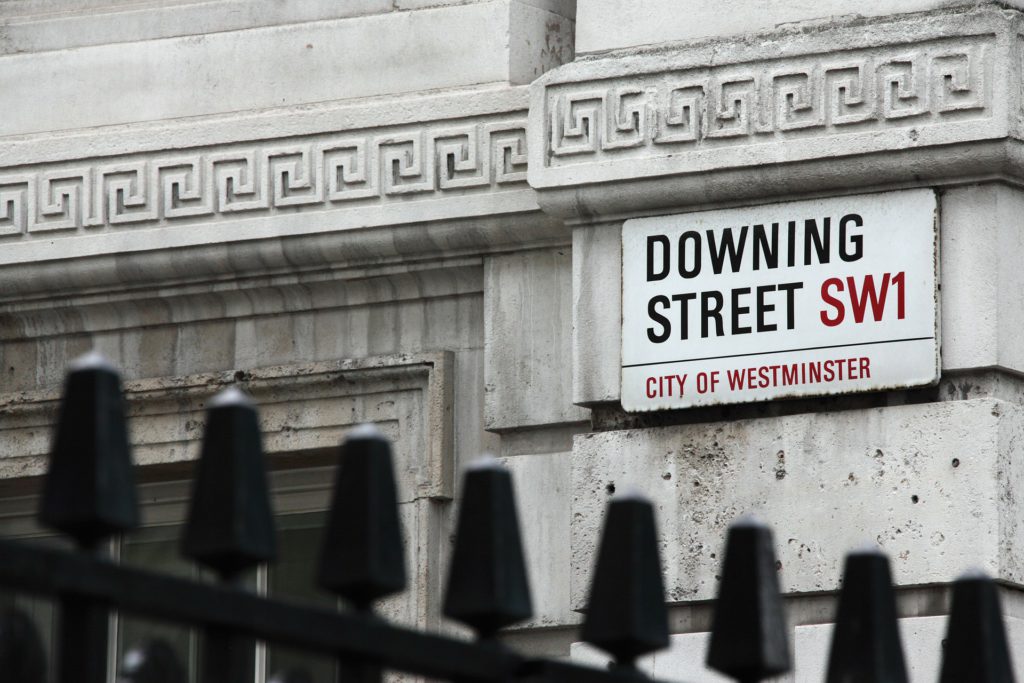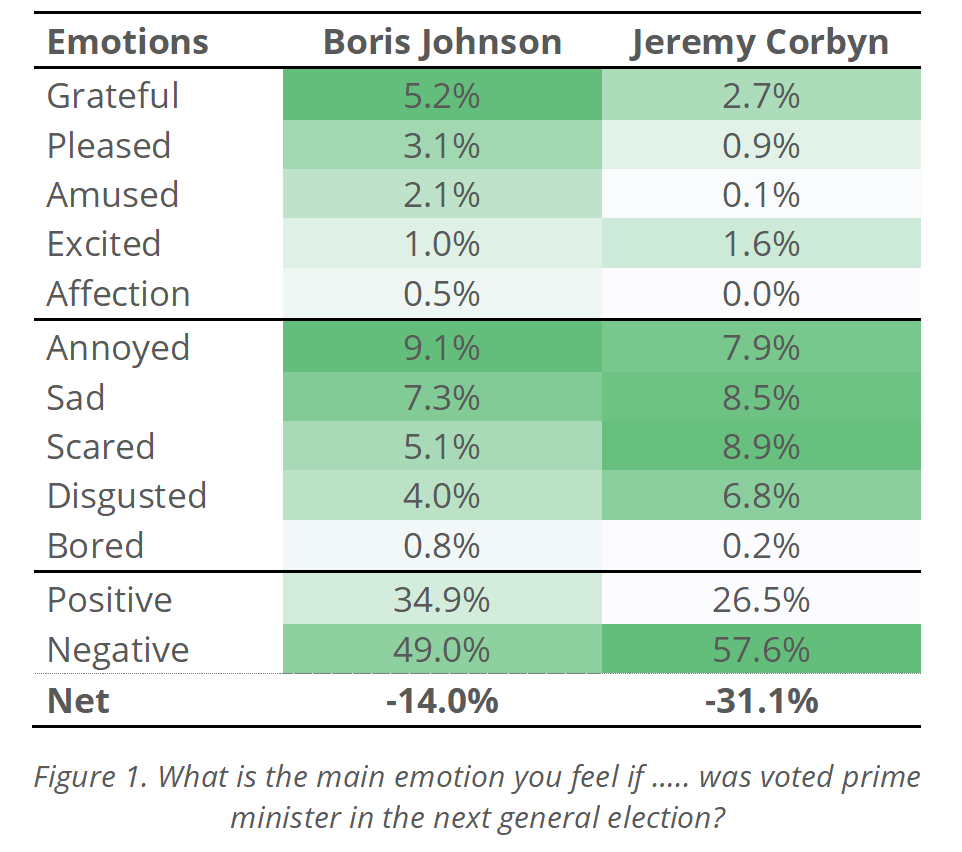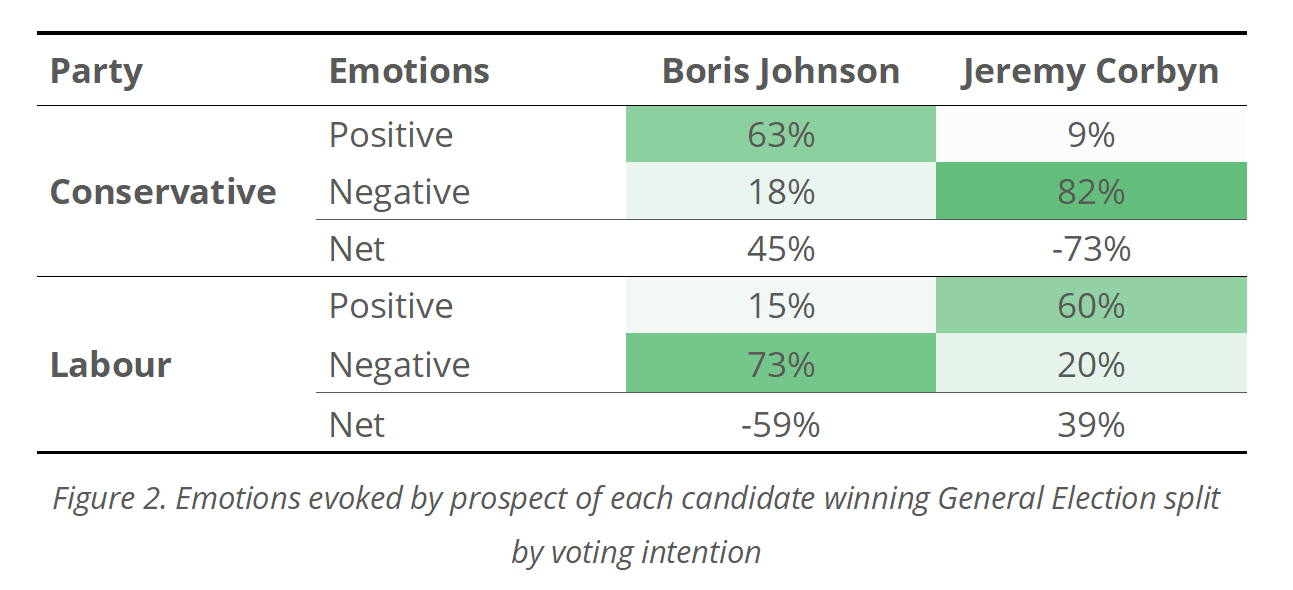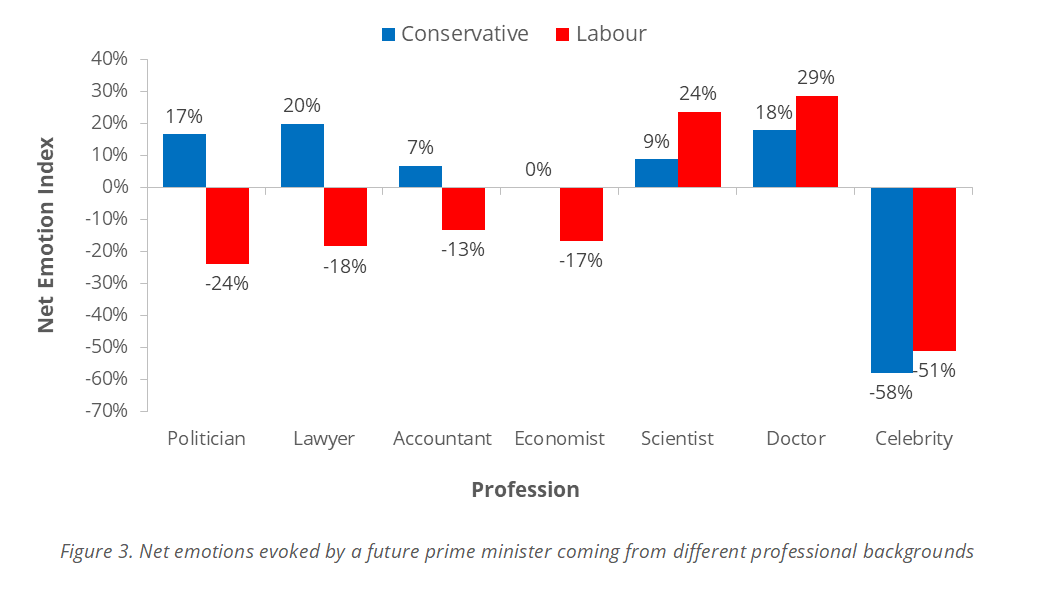Emotalizer: Boris vs Corbyn
Posted: 09/12/2019


“In politics, when reason and emotion collide, emotion invariably wins” – Drew Westen, The Political Brain: The Role of Emotion in Deciding the Fate of the Nation
Voting intentions for the Tories have steadily climbed under Boris Johnson, despite his terrible track record of offending people1 2, shifting position on Brexit3 4, and generating untruths5 . Yet this somehow hasn’t deterred voters and it’s Jeremy Corbyn that is the most disliked opposition leader since 19776 . Indeed, Corbyn is even more unpopular than Michael Foot and post-Bacon sandwich Ed Miliband. He is not without faults, but the discrepancy seems puzzlingly large given there’s so much to dislike about both candidates. We decided to investigate by exploring the underlying emotions surrounding these divergent voter preferences.

We asked a nationally representative sample how they’d feel if either Corbyn or Johnson won the next general election and our results support previous findings. Corbyn is the less popular option, with a net index of positive to negative emotions of -31% vs Johnson’s -14% (Figure 1). The data also corroborates the view that both candidates are unpopular, since the prospect of either would elicit net negative emotion. This election is a Morton’s Fork with Johnson seen as the lesser of two evils.
The research also starts to reveal why Corbyn is less popular. First, he generates more negative emotions, notably fear and disgust. Whereas Boris mainly elicits more annoyance. Second, on the positive side, Corbyn is only eliciting marginally more excitement whereas Johnson is over-indexing on emotions like gratitude and amusement. A substantial minority of voters are scared of Corbyn and would feel relief if he didn’t win.

Figure 2 explores what is driving those overall figures by splitting the emotions by voting intention. We found Tory voters dislike Corbyn (82% negative) significantly more than Labour voters dislike Johnson (73%). Corbyn’s poor performance is due to there being more Tories and his profound unpopularity with that voting bloc.
So who would make better leaders according to the party members? We asked another sample how they’d feel about prime ministers coming from various professional backgrounds. The findings in Figure 3 show how Tory voters tend to prefer career politicians and lawyers. Conversely, Labour voters like the idea of a scientist or doctor, perhaps showing a more progressive approach or simply having been put off by ex-lawyer Tony Blair. The one thing Tory and Labour supporters can agree – no Celebrities.

We’re just a few days away from the result of this election and, by extension, a new leader for the losing party. As the bookmaker’s favourite to lose, the alternatives to Corbyn are not particularly consistent with Labour voters’ preferences. For example, Keir Starmer is an ex-lawyer. The nearest alternatives are former social worker Angela Rayner or mental health worker Laura Pidock. And if the Tories lose? Former lawyer Dominic Raab seems to be a suitable front-runner to pick up the pieces.
1 https://www.businessinsider.com/boris-johnson-record-sexist-homophobic-and-racist-comments-bumboys-piccaninnies-2019-6
2 https://www.independent.co.uk/news/uk/politics/boris-johnson-poor-working-class-chav-loser-burglar-drug-addict-a9227941.html
3 https://www.theguardian.com/politics/2019/jul/17/boris-johnson-support-eu-revealed-leon-sbrittan-widow-letter
4 https://www.telegraph.co.uk/news/politics/10052646/Quitting-the-EU-wont-solve-our-problems-says-Boris-Johnson.html
5 https://www.independent.co.uk/news/uk/politics/boris-johnson-lies-conservative-leader-candidate-list-times-banana-brexit-bus-a8929076.html
6 https://www.politicshome.com/news/uk/political-parties/labour-party/jeremy-corbyn/news/106687/jeremy-corbyn-most-unpopular